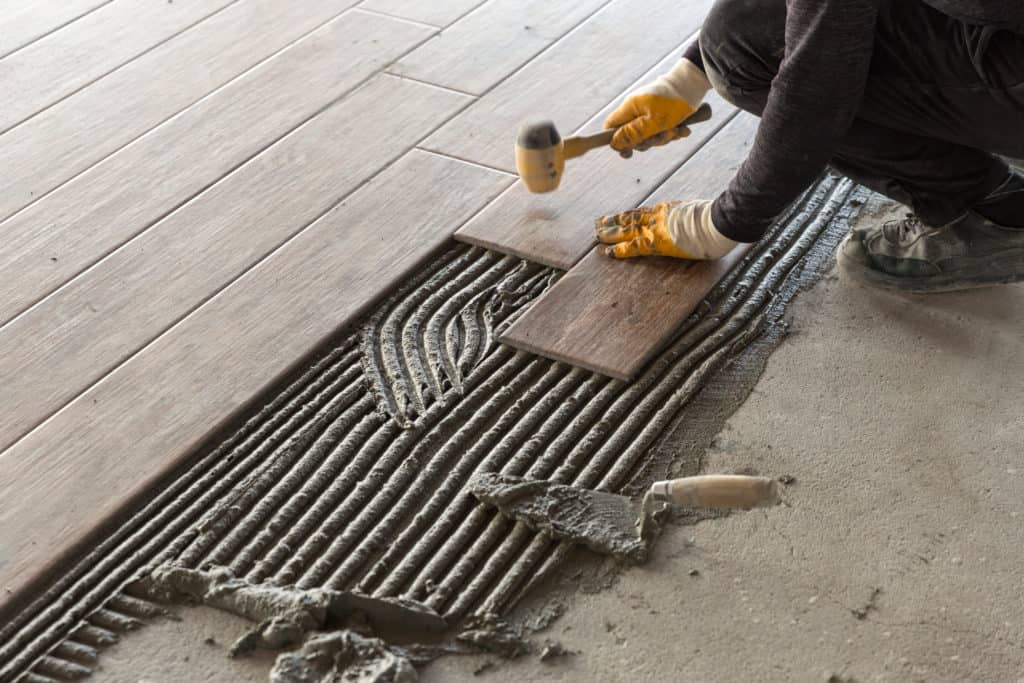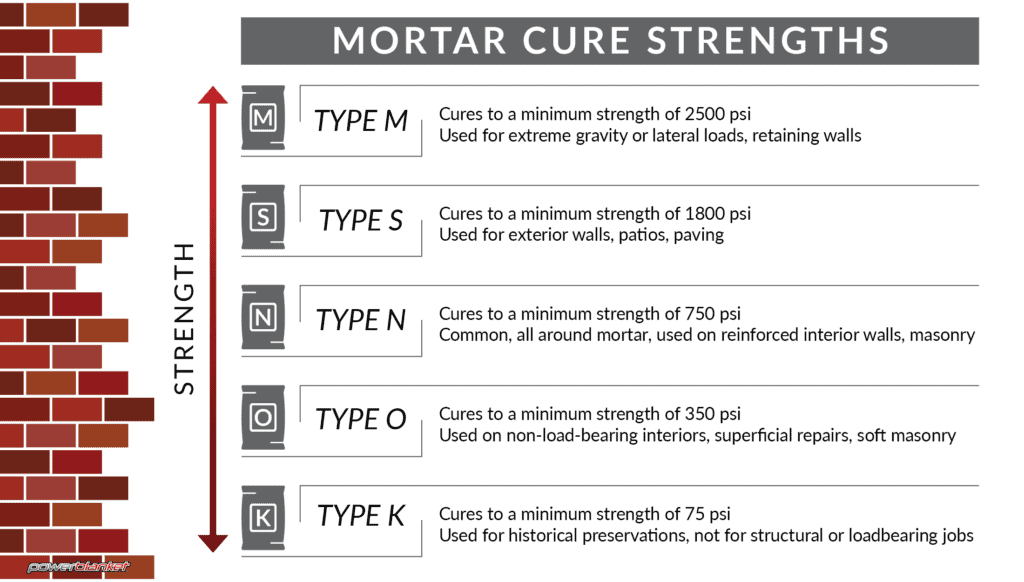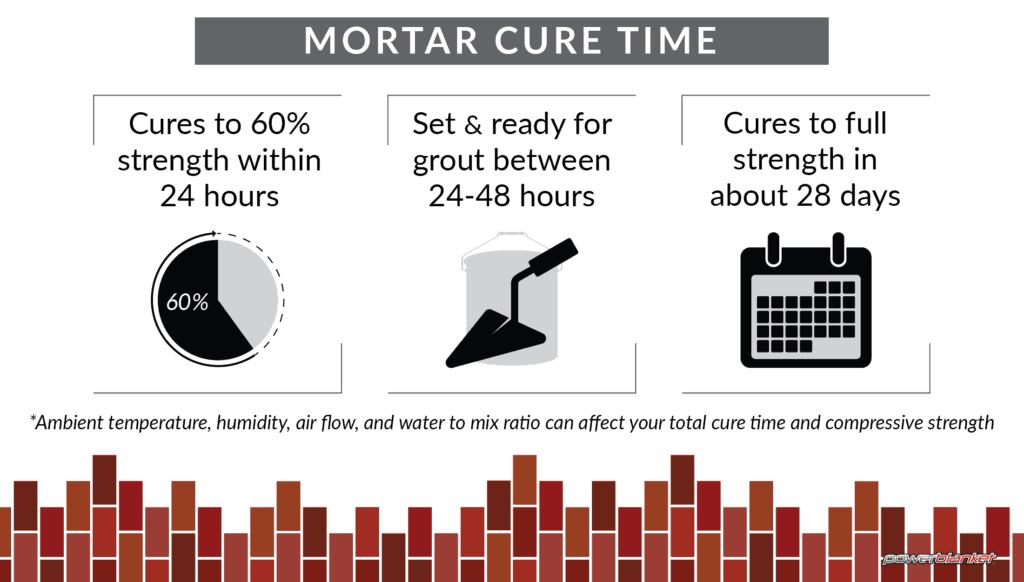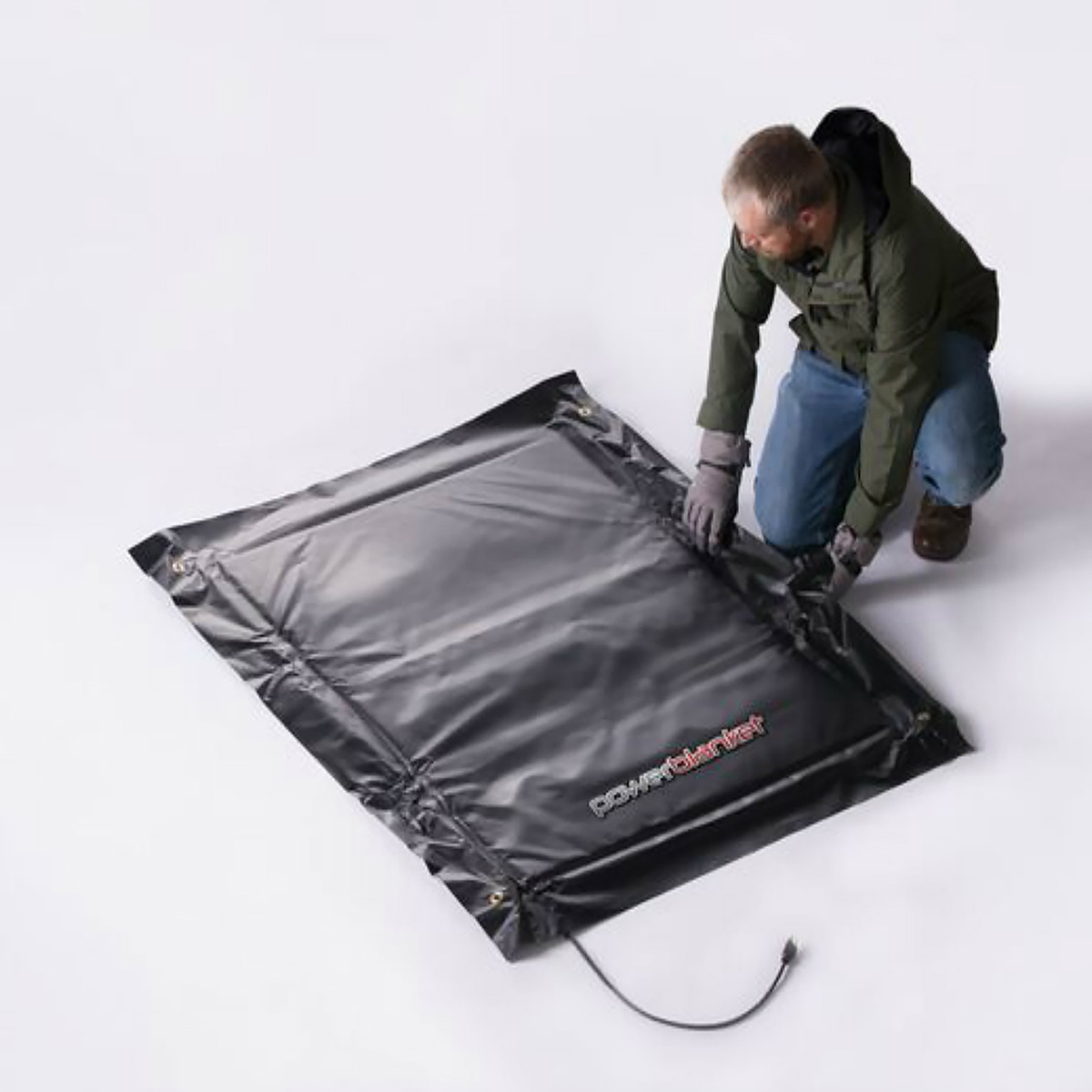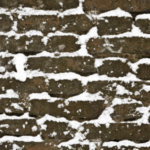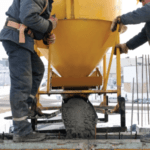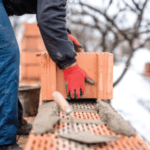As construction projects progress, it can be exciting to reach the final stages. Applying finishing touches to newly reconstructed or refurbished surfaces results in eye-catching aesthetics. Mortaring tiles or other masonry adds a final polish to all your hard work. Just like concrete, mortar requires careful planning and execution to make sure you achieve the ideal cure strength and a strong finish. Let’s take a closer look at what affects mortar cure time and the strengths of different mortars.
WHAT IS MORTAR?
Mortar…Grout, What’s the Difference?
Mortar
Mortar is a mixture of sand, water, lime, and cement. It is used to bond heavy materials together (like bricks and stones) and provide structural integrity. It can also be used for thinner materials (like tiles) to create a bond between the tile and the substrate. Mortar has a lower water content than grout and should only be made with enough water to make it smooth and buttery in consistency.
The versatile uses of mortar make it an essential component for many construction and home improvement projects. Whether you are laying bricks or tiles or finishing a patio, proper mortar selection, mixing, and curing will ensure your project’s strength and durability.
Grout
Grout is a pour-able paste that is used to fill crevices or gaps between tiles that is used after the mortar has become set. It has a higher water content than mortar, which makes it easier to spread. Due to its thinner consistency, grout is not an adequate substitute for mortar.
TYPES OF MORTAR
There are many different types of mortar and each are ideally suited for different applications. Each type cures to a different compressive strength and should be carefully selected to make sure your mortar matches the cure strength you need.
Thinset
Thinset mortar is also known as dry set or dry bond mortar, It contains a water retaining additive that assists with the curing and hydration process. It is most frequently used for tiles and counter-tops. Thinset mortar takes between 24-48 hours to cure. Thinset comes in a variety of mixes that are usable for a wide range of tiles and materials. Each type of tile has different cure strength requirements so make sure to select the right mortar mix for your tile selection.
Brick Mortar
Brick mortar is made from Portland cement and is used for more structural and load bearing projects. It will reach 60% of its strength within the first 24 hours and will take up to 28 days to reach its full cure strength. There are 5 types of brick mortar, and all cure differently than each other.
Type M
Type M mortar cures to a minimum strength of 2500 psi and is the strongest type of mortar. It is used for projects that need to withstand extreme gravitational forces and hold large lateral loads.
Type S
Type S mortar is a medium strength mortar that cures to a minimum compressive strength of 1800 psi. It is typically used on exterior walls, patios, paving, and other projects where mortar comes in direct contact with the ground.
Type N
Type N mortar is common, general purpose mortar that cures to a minimum strength of 750 psi. This type of mortar is commonly used for general masonry projects and to reinforce interior walls.
Type O
Type O is a low strength mortar that only cures to a minimum compressive strength of 350 psi. It is only safe to use on non-load-bearing interiors, superficial (non-structural) repairs, or on soft masonry like sandstone or brownstone.
Type K
Type K is the lowest strength mortar available and has a very limited purpose. It only cures to a minimum strength of 75 psi so it is primarily used for historical preservation. It is not used for anything structural or load bearing due to its low cure strength.
MORTAR CURE TIME
Mortar typically will cure to 60% of its final compressive strength within the first 24 hours. It will then take about 28 days to reach its final cure strength. However the curing process does not always follow a universal timeline. There are a few key environmental variables that affect your mortar cure time. Ambient temperature, air flow, the amount of water used in your mix, and humidity all affect mortar curing time.
Temperature
According to top concrete manufacturer TCC Materials, “normal temperatures are those between 40°F-100°F (4.4°C-37.8°C). Cold weather then occurs when ambient temperatures drop below 40°F (4.4°C).” When you work within the normal temperature range, you can expect your mortar to follow the typical cure timeline.
“Cold weather can slow construction by affecting the set time and strength development of mortar and grout. If weather gets below 40°F (4.4°C) within 24 hours for mortar and 24-48 hours for grout hydration of cement will stop until temperatures become warm enough for hydration to continue.”
Waiting for warm weather is not always ideal or even possible when you are adhering to a construction schedule. Using curing blankets to protect your mortar during the curing process can keep you on track and help your mortar cure to full strength.
Air Flow
The chemical process of curing depends upon the mix staying hydrated. High winds and fans will strip your mortar of the moisture it needs to stay hydrated and cure properly. For interior mortar work, consider turning off fans that can impede the curing process. For exterior work, you will need to make sure you protect your mortar from high winds and possibly add more moisture as it cures to reduce cracking. Most mortar manufacturers will provide re-hydrating instructions for their particular products.
Water
Be sure to carefully follow your mortar manufacturer’s guidelines for mixing ratios. Your mixture should only contain moisture in specified amounts. Too much or too little water will not only change your mortar cure time and cure strength, it will also make it difficult to work with.
Humidity
Maintaining proper moisture levels is critical for your cure time and final cure strength. That means that even the moisture in the air itself needs monitoring. If you are building under extremely low humidity, you may need to add more moisture your mortar to assist in the curing process. Working in high humidity can possibly increase your mortar cure time, but will require less moisture maintenance on your part.
Setting vs. Curing
Even though mortar will not be completely cured, before long it will become set enough for you to move onto the next steps. After 24-48 hours, depending upon the humidity and ambient temperature, you can begin applying grout.
POWERBLANKET MORTAR SOLUTIONS
Concrete Curing Blankets
Few have the luxury of restricting temperature sensitive work to warm weather days. Thanks to Powerblanket, there is no costly off-season and mortar work can continue all year long. Our concrete curing blankets can cure 2.8 x faster than conventional insulated blankets. We can safely insulate your mortar and protect it from losing heat and humidity during the curing process. Contact us today at 855.447.9358 or [email protected] to find the perfect curing solutions for your mortar needs.
Cure your concrete faster and better in cold weather conditions with Powerblanket.


